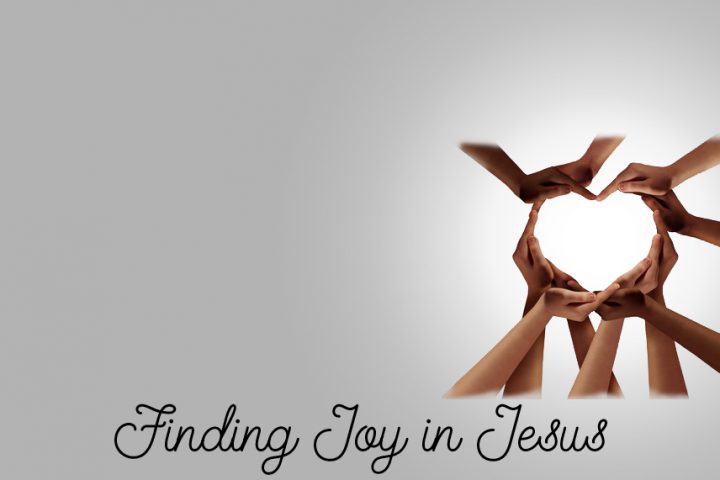Sermons from 2020 (Page 3)
Where Does Your Confidence Lie?
Philippians 3:1-11
Our society places so much emphasis on having an impressive resume, with advanced degrees, a position at a prestigious company, and personal accomplishments. Even in our faith circles, there may be a subtle (or not so subtle) push for similar accomplishments: a master’s degree in theology, leading bible studies, memorizing Scripture. While none of these are negative in their own right, they may lead us to become prideful and to boast in ourselves. The apostle Paul exhorts us in Phil 3:7-11 to place no confidence in those worldly aspects, but rather let our confidence be rooted in the Lord, in knowing Him and being found in Him. God Himself tells us in Jeremiah 9:24: “let him who boasts boast in this, that he understands and knows me”. In what can you boast? Where does your confidence lie?
Faithful Co-Laborers
Philippians 2:19-30
In our journey through Paul’s letter to the Philippians, we explored the glorious Christ Hymn in Phil 2:5-11 that illustrated Jesus’ divinity and humanity. This week, we look at two faithful servants of the Lord that truly followed the example of Jesus from the Christ Hymn. They were compassionate and committed, submissive and sacrificial. They can be good models for us as followers of Jesus. Or more accurately, they point to the true model for us: Jesus Christ. We are to imitate Christ by adapting His mindset in the manner we relate to each other. This is what Paul exhorts us in Phil 2:5-8. Meditate on this passage this week and ask the Holy Spirit to transform us into Christ-imitators.
In your relationships with one another, have the same mindset as Christ Jesus: Who, being in very nature God, did not consider equality with God something to be used to his own advantage; rather, he made himself nothing by taking the very nature of a servant, being made in human likeness. And being found in appearance as a man, he humbled himself by becoming obedient to death—even death on a cross!
Shining Like Stars
Philippians 2:12-18
This week we’ll see Paul call the Philippian church to shine like stars in the midst of a twisted and broken world. It seems an overwhelming task until we realize that it is God at work in us who provides both the desire and the ability to do so. The call is, therefore, to participate in the work that God is doing in and through us. So what would it look like for us to shine like stars in our current circumstances?
A Different Kind of God
Philippians 2:5-11
We continue our studies this Sunday in the book of Philippians. And, we come to holy ground. In this text, known as a hymn to Christ, we find a different kind of God. Into a world where “gods” are expected to use absolute power, power to advance themselves and power to exploit others, we find these extraordinary words. Here, we find a God who seeks to not advantage himself, but to humble himself in obedient servanthood. This God becomes defined by a cradle, a cloth (John 13) and a cross, giving himself away in self-giving love. And what are we to do with this good news? Paul invites us to model this kind of love to a desperate and hurting world.
Unity! Unity! Unity!
Philippians 2:1-4
As we return to Paul’s friendship letter to the Philippian church, we see Paul asking for just one thing from them – Unity! In an individualistic society, we highly value our right to our own opinion and we definitely don’t want to be brainwashed. So what is this Unity? Is it even possible? And if it is possible, is it even something we want?
The Living Water
John 4:1-26
This week we come to one of John’s famous passages, where Jesus meets a Samaritan woman at a well. She is an outcast, Samaritan and woman. He is a rabbi (even God), Jew and man. Throughout their conversation, we find that she is empty, her water pot symbolizing her emptiness. In the same way she needs to continually fill her water pot with water, she is continually filling her life with relationships that ultimately do not satisfy. And, what does Jesus do? He jumps over every single dividing wall between him and her to love her, then offers her living water that will satisfy her deepest thirsts. “Come and see” this life-giving text via live-stream this Sunday.
Friend of the Bridegroom
John 3:22-36
After that deeply theological conversation with Nicodemus, Jesus heads back into the Judean wilderness where John is baptizing. And, we hear John’s last speech in this Gospel. He joyfully says he is not the bridegroom; he is the friend of the bridegroom. Jesus, the one from above, is the bridegroom (implying he is God), while those who receive him become his bride (implying a new people of God). For John, as the friend of the bridegroom, his job was to connect the bride to the bridegroom. When he does his job, he can joyfully fade out of the picture, an attitude captured in his final statement, “He must increase, but I must decrease” (3:30). What if we were to live by that same attitude as well?
The New Birth
John 3:1-21
In this section of John, we are seeing that Jesus is making all things new. So far, we’ve seen the gathering of a new people of God, the miraculous new wine at a wedding and the promise of a new temple. In our text this week, we hear of the necessity for a new birth. Jesus meets one-on-one with a man named Nicodemus who comes to him by night. Nicodemus is very smart, very good and very religious. Yet, Jesus shatters his pride by saying that all of his smarts and all of his goodness and all of his religiosity mean nothing when speaking of abundant life and eternal life. “Nicodemus, you must have the new birth.” The same goes for you and me. But, how does this happen? John 3:16, “the Gospel in miniature,” explains it. “For God so loved the world, that he gave his only Son, that whoever believes in him should not perish but have eternal life.” So, how does this happen? You must believe in the Son, who was given by a God who loves you.
This is Personal!
John 2:12-25
This week we see Jesus go from one celebration (a wedding) to another (Passover). But while He was willing to remain a guest at the wedding, Jesus is not willing to remain a ‘guest’ at the temple. It is, as Jesus says, “My Father’s house”. So what happens when God, in the person of Jesus Christ, shows up to His house of worship to find it has been turned into a house of business? Come and see!
When Jesus is Invited
John 2:1-12
Up until this point in John’s gospel, Jesus has been mostly moving around privately, gathering his team of followers. This week, in chapter two, the curtains get drawn back, and God enters the public stage. And, where does he make himself known first? At a wedding celebration. So, what happens when Jesus is invited to a wedding (or into anything in life)? Come and see!
The First Followers
John 1:35-51
Last week we heard the witness of John the Baptist. This week, Jesus takes center spot as people begin following him. Jesus’ first words of the Gospel are to these followers, “What are you seeking?” It’s an inviting and searching question. If he were to ask you that today, how would you answer it? The first followers then respond with a question, “Where are you abiding Jesus?” It’s a way of saying, “If we come to you Jesus, what will we find?” And, in this text, Jesus makes two great promises to these first followers. Come and see what they are this Sunday.
Communion
At the end of Sunday’s live-streamed service we will again take communion “together”. I invite you to prepare elements ahead of time which represent the body and blood of Jesus. The elements do not need to be “special.” Please use whatever you have at home (no need for a special trip to the grocery store). Who may partake? All who give their allegiance to our Lord Jesus Christ and follow him. At the end of the service, please be ready to eat and drink with your families, as we partake as a church family.
The Witness
John 1:19-34
This Sunday we will continue our studies in the Gospel of John. After that magnificent prologue, we now enter into the story with the witness of John the Baptist. Throughout John’s Gospel, the concept of witness is very important. In fact one could read the entire Gospel through the “lens” of witness. Jesus is on trial, and many witnesses are called forward to testify to his nature, character, words and actions. By the end of the Gospel, we, the readers, will need to render our own verdict. Who is this Jesus? But, for now, let’s call the first witness. John the Baptist, please come forward and take the stand.

